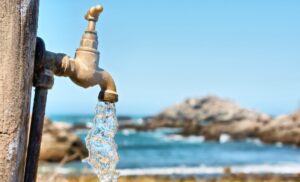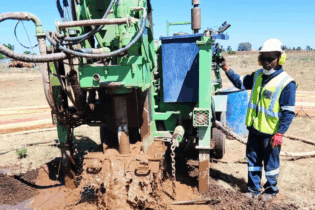The Department of Water and Sanitation in Eastern Cape has urged residents in the province to continue using water sparing even as the overall water storage capacity remains above average, with a minimal decrease from last week’s 78.5% to 78.0% in the current week.
This was seen on a weekly dam levels report issued by the Department earlier this week. Despite the above-average levels, the Algoa Water Supply System remains serious for the Department as it has remained consistently low, affecting the provision of water supply in the Nelson Mandela Bay Metro. The System has minimally increased from 18.9% recorded in the previous week to 20.7% this week. The slight decrease is attributed to the light showers experienced in the Metro last week, which left the air chilly as the winter season sets in. Kouga Dam is at 22.3% from 19.2%, Impofu Dam on the Krom River has emptied at 6.9 while Kromrivier Dam is also at a low 32.6 from last week’s 29.6%. Loerie Dam has decreased from 101.2% last week to 95.7% this week and Inqweba Dam is at 36.3% this week compared to 36.6% last week.Meanwhile, other water supply systems are in a better position as compared to the Algoa Water Supply System.
The Amathole Water Supply System with dams serving Buffalo City Metro is above average, although recording a decrease from 101.6% last week to 100.8% this week. Nahoon Dam which gets water from the Amathole System is at 99.3% from 99.9%, Bridle Drift Dam is above average at 101.6% from last week’s 102.5% and Rooikrans Dam has increased from 98.9% to 99.5%. The Klipplaat Water Supply System with dams supplying Komani and surrounding villages remains unchanged at last week’s 100.2%. Macubeni Dam is sitting at 100%, Xonxa Dam is also full at 100.5%, and Waterdown Dam providing water to Whittlesea township is sitting at 100.3% this week. Residents are urged to report the vandalism of water infrastructure to local authorities or call the Department’s toll-free number on 0800 200 200.






